PRK Surgery in Turkey
Healthy Türkiye helps you find the best PRK surgery in Turkey at affordable prices and adopts a 360-degree service approach in all areas of health through affiliated hospitals.
- Medical Treatment
- Eye Surgery in Turkey
- Corneal Transplant in Turkey
- Lasik Eye Surgery in Turkey
- Retinal Detachment Treatment in Turkey
- Cataract Surgery in Turkey
- Astigmatism Treatment in Turkey
- Oculofacial Plastic Surgery in Turkey
- Ptosis Treatment in Turkey
- SBK Surgery in Turkey
- Dermatofibromas Removal in Turkey
- Glaucoma Surgery in Turkey
- Ocular Prosthesis in Turkey
- Retinoblastoma Treatment in Turkey
- Uveitis Treatment in Turkey
- Vitrectomy in Turkey
- Eye Muscle Surgery in Turkey
- PRK Surgery in Turkey
- Phacoemulsification Surgery in Turkey
- Pneumatic Retinopexy Surgery in Turkey
- Presbyopia Treatment in Turkey
- Refractive Surgery in Turkey
- Scleral Buckling Surgery in Turkey
- Strabismus Surgery in Turkey
- Extracapsular Cataract Extraction Surgery in Turkey
- Squint Surgery in Turkey
- Excimer Laser Surgery in Turkey
- LASEK Surgery in Turkey
- Homepage
- Medical Treatment
- PRK Surgery in Turkey
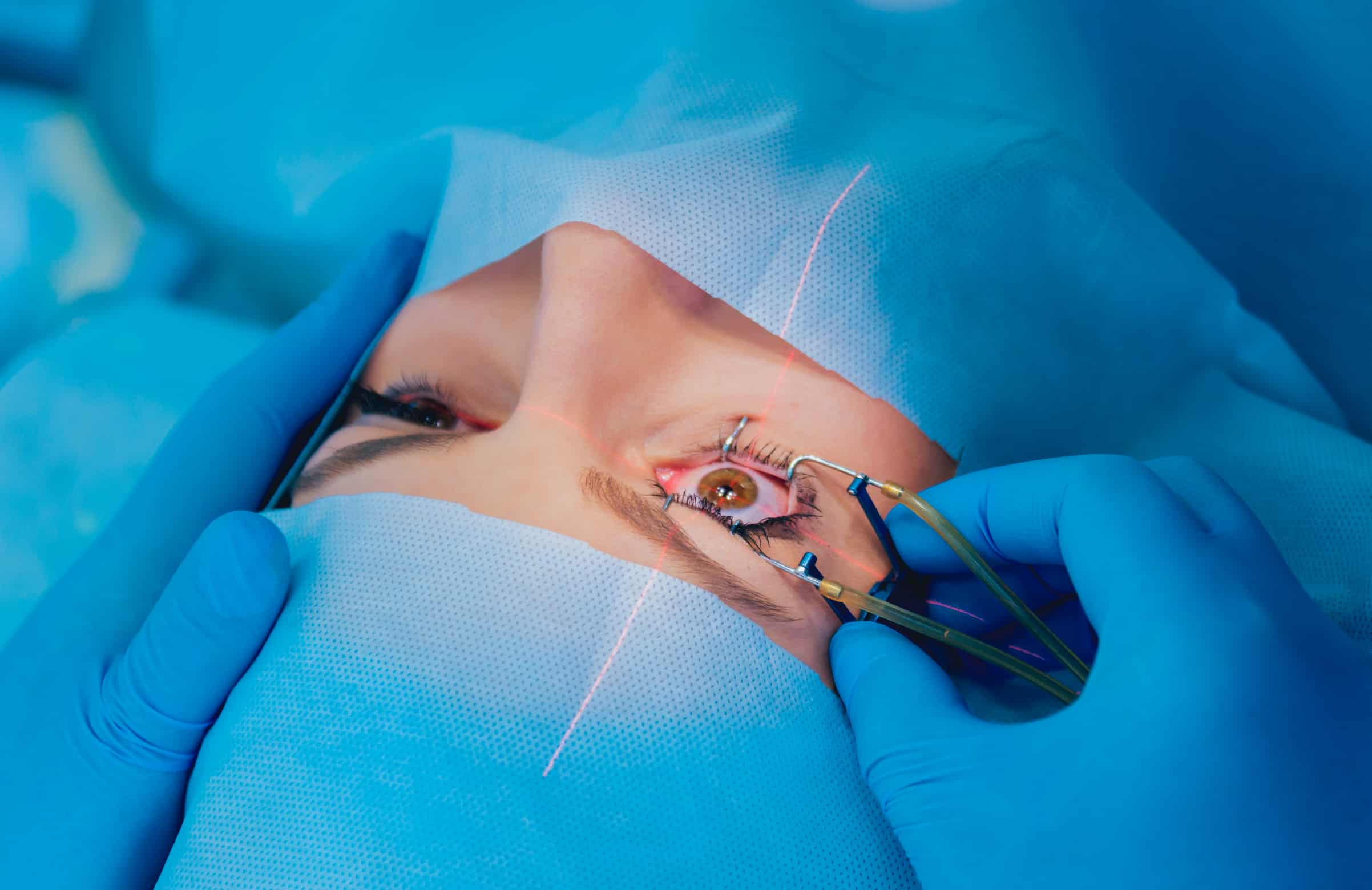
About PRK Surgery in Turkey
The Lasik procedure, which is also known as PRK surgery in Turkey, does not involve the folding away of the corneal layer cover (flap), but rather the full removal of the superficial corneal layer. The actual laser therapy will then take place after this. In the end, a protective lens is placed in the cornea, but it is taken out again as soon as the cornea’s natural layer has begun to form. Patients whose corneas have a relatively thin corneal layer are the primary candidates for this surgical procedure (flaps). As a result, patients who have the issue that was discussed earlier are the only ones who should consider undergoing this lasik procedure.
In this procedure, the evaluation process is the same as that used in wavefront LASIK or iLasik, which means that the “genetic fingerprint” of the eye is individually determined by wavefront 3D measurement analysis and taken into consideration when the cornea is being treated. The treatment of the corneal layer is the only thing that sets this procedure apart from others. When PRK surgery in Turkey is performed, the corneal layer cover (flap) is not removed; however, the superficial corneal layer, which is very thin, is either removed or detached. The actual laser therapy will then take place after this. In the end, a protective lens is placed over the cornea, but it is taken off as soon as the cornea’s natural layer has also begun to form.
Patients whose corneas have a relatively thin corneal layer are the primary candidates for this surgical procedure (flaps). This Lasik technique is not “ancient,” but it can only be performed if the horny layer of the cornea is very thin. Because of this, the PRK Lasek approach is only indicated for those who seek a minimally invasive or scar-free LASIK procedure.
PRK-LASIK is performed without a wavefront 3D measurement if it is determined that the patient is not a good candidate for a wavefront measurement. In PRK, the risks that are taken while creating the corneal flap are significantly reduced. The medical professionals to whom we refer you will be pleased to provide you with information regarding the additional options. In every laser therapy, only one-time-use items are kept in the laser beam. Because of this, there is no longer any danger of infection.
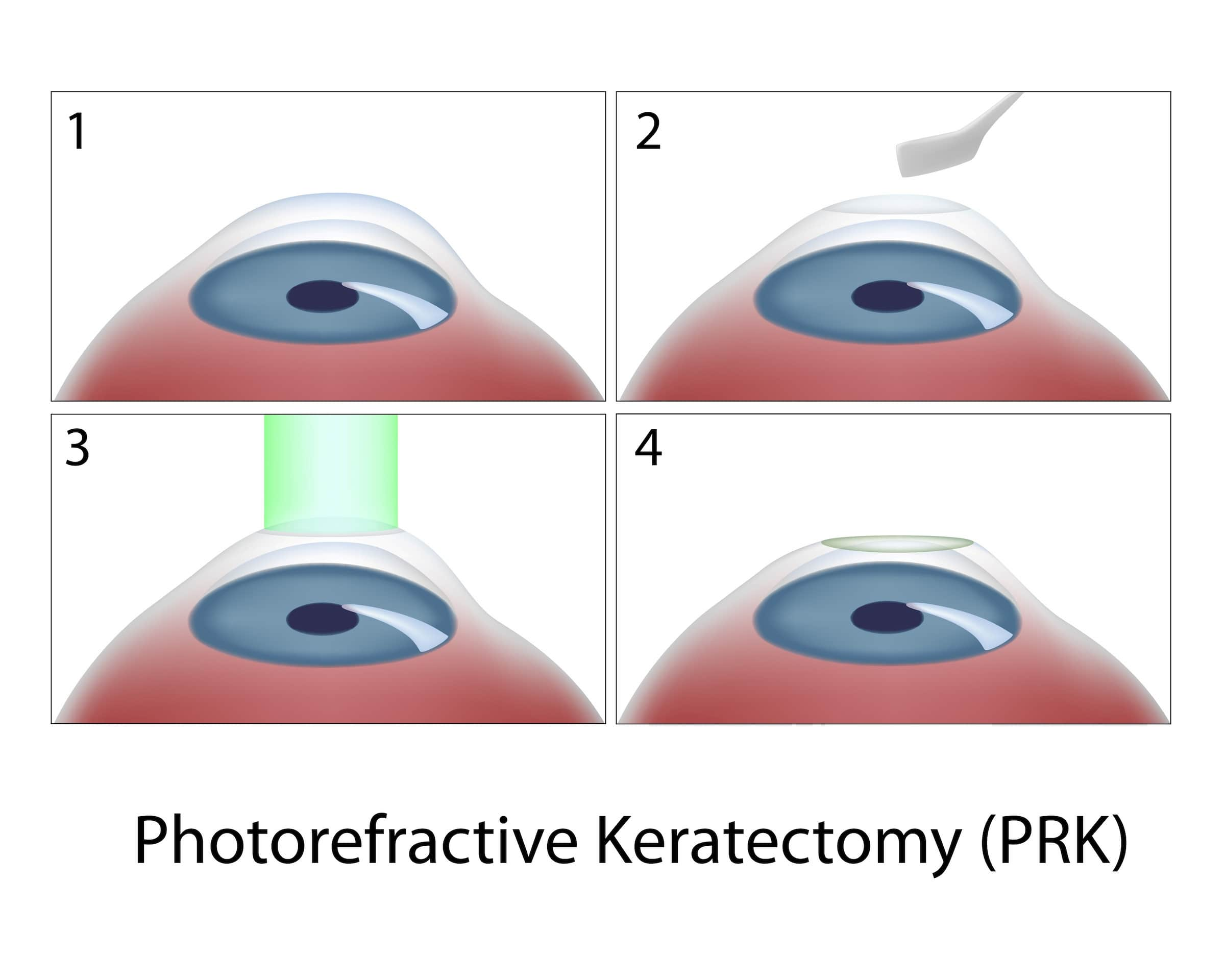
PRK Surgery Procedure in Turkey
Photorefractive Keratectomy, more often known as PRK surgery in Turkey, is a form of laser eye surgery that can treat nearsightedness, farsightedness, and astigmatism to a moderate degree. During PRK surgery, the cornea is reshaped with a laser to make light focus more precisely on the retina, which ultimately results in improved vision.
Contrary to LASIK eye surgery, photorefractive keratectomy (PRK) does not involve the use of a blade or a laser cutting instrument to produce a flap in the cornea. PRK surgery, on the other hand, involves removing a very thin layer of the cornea’s surface and then reshaping the remainder of the cornea in order to rectify the patient’s eyesight.
The PRK procedure is accurate in rectifying cases of nearsightedness, as stated by Healthy Turkye, and approximately 80 percent of PRK participants have 20/20 vision one year following surgery. PRK surgery is not as common as LASIK eye surgery since the recovery time after LASIK is typically shorter, the patient experiences less discomfort, and the outcomes are more reliable.
Surgery known as photorefractive keratectomy (PRK) is performed on one eye at a time in order to ensure that the patient has satisfactory vision throughout the healing period and to examine the outcomes of the procedure. When compared to LASIK, the recovery time for PRK surgery is around three months for the best possible vision after the procedure. Individuals who have had PRK surgery can typically go back to work 48 hours following the procedure.
The photorefractive keratectomy (PRK) technique is the second most popular form of laser eye surgery. The first step in the PRK surgery in Turkey procedure is the removal of a small part of the cornea’s surface, as well as some epithelial tissue. As a result, there is no requirement for the construction of a flap, and the tissue that was taken regrows. Some patients opt for PRK because they don’t want a corneal flap, while other patients are better candidates for PRK eye surgery than they are for any other laser treatment (for instance, people with thin corneas). After the epithelium has been eliminated, the cornea is remodeled with the assistance of a laser. The laser is an excimer laser, the same type that is utilized in LASIK surgery.
Reasons for PRK Surgery in Turkey
The procedure known as photorefractive keratectomy, or PRK surgery in Turkey, is a type of laser eye surgery known more specifically as refractive surgery. Your eyes have a refractive problem if they don’t bend light the way they should, preventing you from seeing as clearly as possible. After undergoing PRK, there is a possibility that you will no longer require the use of your glasses or contact lenses, or at the very least, you will only need them for specific tasks, such as reading or driving at night.
A procedure called photorefractive keratectomy may be recommended to correct refractive problems in your eyes. This operation will alter the way light rays are focused on your retina by modifying the shape of your cornea, which will be done with the assistance of a laser. If your eye doctor has diagnosed you with any of the following conditions, you may be a candidate for a PRK procedure:
Hyperopia (farsightedness)
Astigmatism (the shape of your eye causes blurry vision).
Myopia (nearsightedness)
Your eye sight is absolutely necessary for you to have the highest possible quality of life. PRK (photorefractive keratectomy) is a type of refractive laser eye surgery that can help with nearsightedness, farsightedness, and astigmatism. This type of eye surgery can be performed on an outpatient basis and can help improve one’s vision. After one month, around 80 percent of patients report an improvement in their vision, and after three months, 95 percent report an improvement.
A photorefractive keratectomy, often known as PRK, is a brief treatment that requires only a short amount of time for recuperation. It is possible for your astigmatism, nearsightedness, or farsightedness to become less noticeable. Keep in mind that you should have reasonable expectations for your PRK. After the procedure, you may still need to use your glasses or contact lenses. As soon as you sense something is wrong with your eyes, you should get in touch with Healthy Türkiye to find out what your alternatives are.
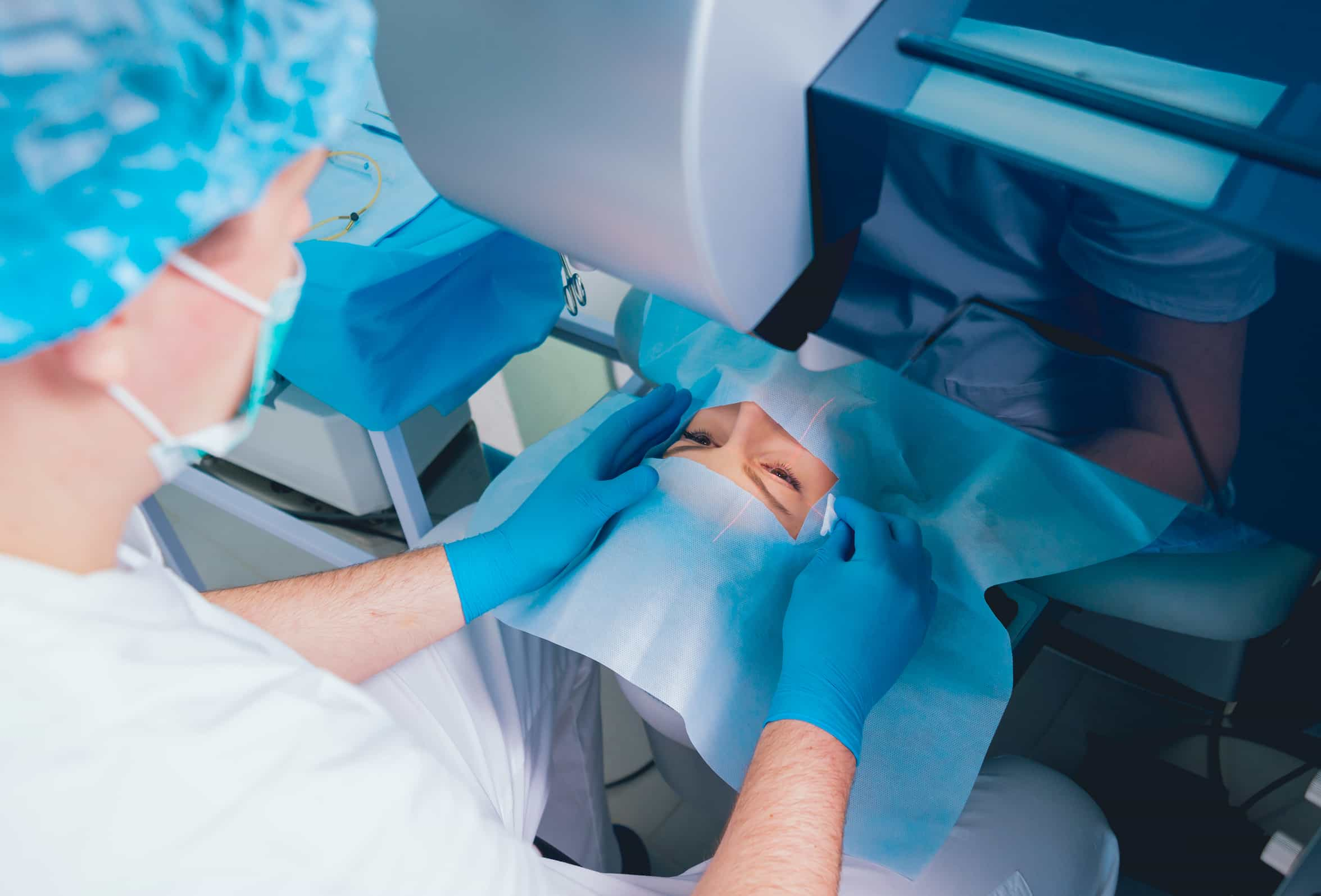
We Care About Your Health
Healthy Türkiye provides the best for your health and comfort. You will feel privileged with us.
7/24 Quality Personal Assistance Throughout Your Journey
Customizable for You All-Inclusive Packages
Get the Right Advice for your Health
How Is PRK Surgery Performed in Turkey?
One of the most frequent kinds of laser vision correction procedures is called PRK, which stands for photorefractive keratectomy. Patients who are not candidates for other types of laser vision correction procedures, such as LASIK or SMILE, are typically the ones who undergo this operation. In this post, we will provide a concise overview of the most important aspects of Photorefractive Keratectomy (PRK), which is a type of laser eye surgery.
In PRK, there is no creation of a flap-like there is in LASIK. Instead, the inner layers of the cornea, which are referred as the stroma, are removed with a laser in order to reshape the cornea so that it better fits your prescription. Combining this method with the use of a laser to remove the epithelium, which is the surface layer of the cornea, is common practice. The dual use of a laser to first remove the epithelium and then resurface the stroma is referred to as trans-PRK. This technique for laser vision correction is frequently referred to as the “non-touch” method. After that, a bandage contact lens is placed on the eye, and it stays there for anywhere from four to seven days before being removed. During the process, the patient’s eyes will be held open with the use of clips that have been specifically made for that purpose.
LASIK is a treatment that is very similar to PRK surgery in Turkey; however, with LASEK, the epithelium, which is the surface layer of the cornea, is manually removed, frequently with the assistance of alcohol that has been specifically formulated for this purpose. You can choose the trans-PRK approach that does not involve any touching if you live a healthy lifestyle in Turkey.
PRK is able to address short/near-sightedness (also known as myopia), near/long-sightedness (also known as hyperopia), reading vision (also known as presbyopia), and astigmatism by utilizing modern laser technology. If you are over the age of 50, however, you could find that Implantable Contact Lens Surgery or Refractive Lens Exchange is a more effective treatment option for extreme prescriptions of myopia, hyperopia, or astigmatism.
Most people make excellent recoveries after PRK surgery in Turkey. However, the recovery is slightly slower than LASIK. Usually, there is some pain after the procedure as the surface of the cornea heals. The pain is controlled with analgesia. The visual recovery is also slower during the healing process. However, at about 1 week after surgery, the vision is similar to LASIK.
Good Candidate for PRK Surgery in Turkey
In photorefractive keratectomy (PRK), sometimes known as “laser eye surgery,” the cornea is reshaped with the help of a laser that is specifically designed for medical usage. This changes the way light travels through the eye and focuses it more precisely on the retina, which is the light-sensitive tissue that is positioned in the rear of the eye. Myopia (also known as nearsightedness), hyperopia (sometimes known as farsightedness), and astigmatism can all be effectively treated with PRK. It is an excellent substitute for the use of corrective lenses.
Those who have refractive problems (myopia, hyperopia, or astigmatism) and would like to attain great vision without the need to rely on corrective glasses are ideal candidates for PRK. Individuals need to be in generally good health and aware of both the potential drawbacks and advantages of PRK. The following are some general guidelines that should be followed when running for office:
At least 18 years old
Not pregnant or nursing
Stable prescription for at least one year
Free from eye injuries and infection for at least one year
Not suffering from dry eye syndrome
No issues with keratoconus
Because to advancements in eye care operations, patients now have a wide variety of treatment options available to them in the pursuit of better eyesight. In the course of the free online consultation with Healthy Türkiye, we will be more than delighted to go over these issues with you, answering all of your questions and addressing your concerns so that you may make the most informed decisions possible regarding your eye health and vision requirements.
Recovery from PRK Surgery in Turkey
You will require some relaxation at the clinic following the surgical procedure, and then you can go home. You shouldn’t plan anything else for that day but get some rest instead. It may be beneficial to your healing and your overall level of comfort if you sleep with your eyes closed. It’s possible that the doctor will want to check on you the day following the surgery to evaluate the results and see how comfortable you are. If you detect any of the following symptoms, you should make an appointment with your doctor as soon as possible:
redness
pus
swelling
In the event that the bandage contact lens becomes loose or falls out, you should call your doctor immediately. In order to have the lenses removed from your eyes, you must come back within seven days. Immediately after the operation, your vision may be better than it was previously. Yet, it will grow hazy as you begin to recover from the injury. The situation will then drastically improve. After having bandage contact lenses removed, many patients report an improvement in their eyesight.
Please avoid touching your eyes or removing the lenses protecting them. For at least a week, abstain from getting any kind of product (makeup, detergent, shampoo, etc.) in your eyes. Find out from your doctor when it’s OK to use soap and shampoo again.
The recovery of your eyesight may necessitate some time off work, as prescribed by your doctor. You should discuss driving, reading, and using the computer with your doctor. At first, it will be challenging to engage in such pursuits. Keep off the roads until your vision clears up, especially at night. For at least a week, avoid getting sweat into your eyes, as this might cause irritation. For at least a month after getting your eyes checked, you should avoid contact sports and anything else that could harm your eyes.
It is recommended to use eye protection for an extended period of time (months). Don’t even think of going swimming for a few weeks, even if you have goggles. For the same amount of time, you should avoid getting any dirt or dust in your eyes.
Your vision may not be totally stable for several weeks. Eighty percent improvement in vision is usually after one month, and ninety-five percent improvement after three months. At three months after surgery, roughly 90% of patients can see at or above 20/40. Keep your eyes covered for about a year if you want to prevent damage. Sunglasses, even ones that don’t require a prescription, are a necessity during the day.
What’s the difference between LASIK and PRK surgery in Turkey?
Another kind of laser eye surgery that modifies the cornea is called LASIK (laser-assisted in-situ keratomileusis). The corneal flap is not cut during a PRK surgery in Turkey procedure like it is during LASIK. If you have dry eyes, a thin cornea, or an extremely busy lifestyle, PRK may be the best option for you. The exercise may cause the corneal flap to shift.
The cornea, or transparent front surface of the eye, is the target of all laser vision correction procedures. This is done to ensure that incoming light is focused precisely where it needs to be, on the retina, at the back of the eye. Laser corneal reshaping (PRK) is a surgical procedure in which an eye doctor uses a laser to alter the cornea’s natural contours. Instead of using it beneath a corneal flap, as in LASIK, this laser, which emits a pulsating beam of ultraviolet light, is applied directly to the cornea’s surface.
The healing time and discomfort associated with LASIK are both significantly lower. PRK patients often experience temporary blurred vision after the procedure. As a general rule, PRK results in a long-term vision that is on par with that achieved by LASIK.
The following are some of the reasons why you might prefer PRK to LASIK: When compared to PRK, LASIK is a more recent treatment. Your eye doctor might know more about photorefractive keratectomy than you do. Discuss their background and success rates with your prospective eye surgeon.
The flap may become dislodged or displaced during LASIK surgery. Pilots, athletes, and anyone who engages in strenuous physical activity may choose a PRK because it does not involve a flap that can be moved by such action.
PRK vs LASIK Which Is Better?
The cornea, the transparent outer layer of the eye that focuses light so you can see well, can be reshaped with a laser in both LASIK and PRK surgeryin Turkey. Nonetheless, they go about it in significantly varied fashions. The cornea is cut into a thin flap during LASIK surgery. When the cornea’s outermost layer is removed via PRK, a new layer eventually replaces it. In both cases, there are benefits and drawbacks to the operations. Please contact Healthy Türkiye to find out if LASIK or PRK surgery in Turkey is the better option for you by consulting the best doctor doctors.
Your PRK procedure will take place in a day surgery facility. The eye doctor will first use numbing drops. So that you don’t blink, they’ll put a customized eyelid holder over your eye. Your cornea’s epithelium is scraped off by the surgeon using a blade, laser, brush, or liquid containing alcohol. The cornea is reshaped with a laser. Two eyes can undergo PRK in around a quarter of an hour.
LASIK can be performed in an eye doctor’s office or an outpatient surgical center. Before anything else, the doctor will use drops to disinfect and numb your eye. The surgeon will use a gadget to keep you from blinking during the procedure. Suction rings are used to hold the eye steady during procedures. A slight amount of pressure will be applied, and your vision will go dark for a second. The surgeon will then make a small incision in the cornea using a laser or microkeratome. Your cornea will be reshaped using a laser, and then the flap will be folded back over. After the flap mends, it will become sealed. The total time for LASIK surgery on both eyes is less than 30 minutes.
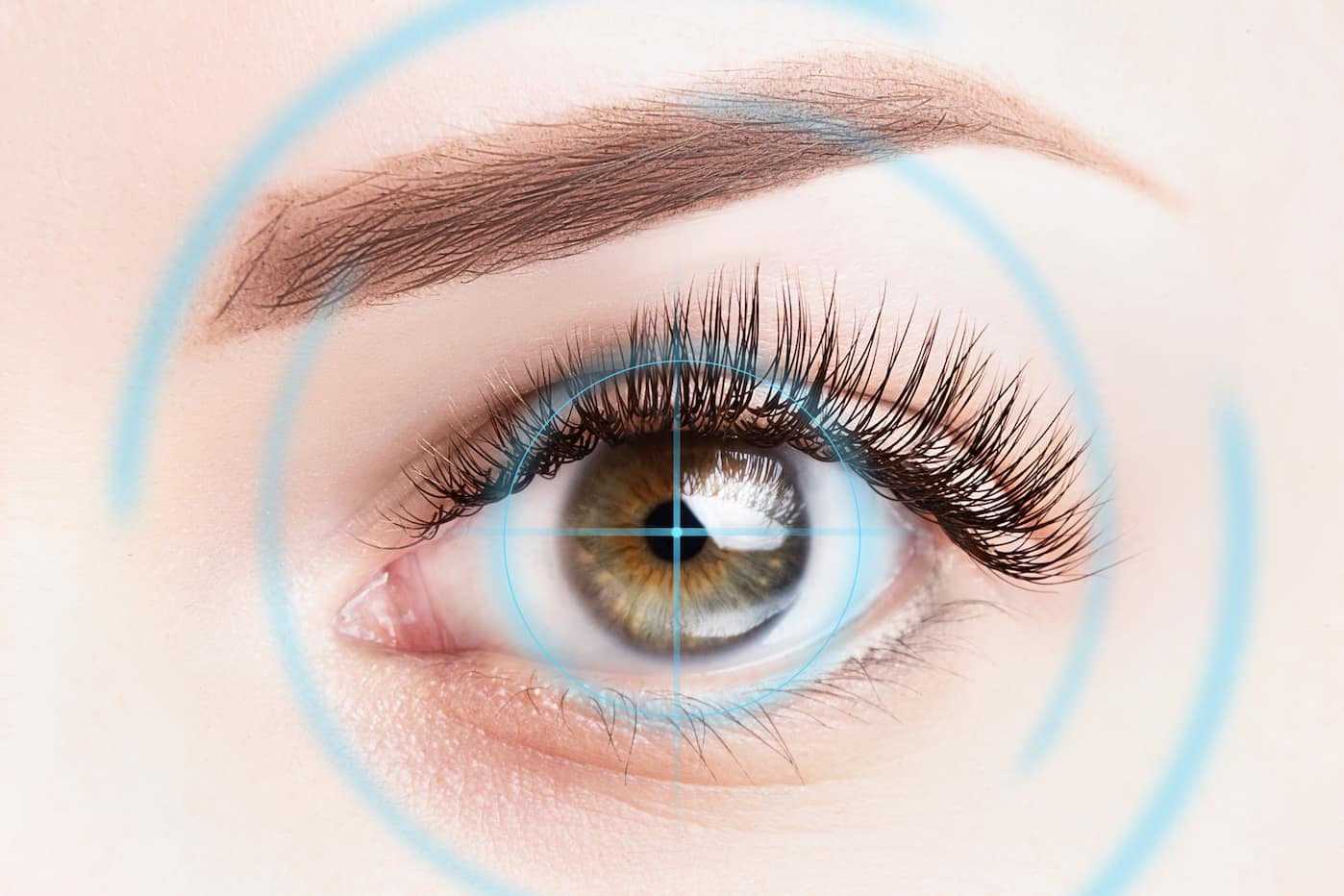
2026 Cost of PRK Surgery in Turkey
All types of medical attention like PRK surgery are very affordable in Turkey. Many factors are also included in determining the cost of PRK surgery in Turkey. Your process with Healthy Türkiye will last from the time you decide to have a PRK surgery in Turkey until the time you are fully recovered, even if you are back home. The exact cost of a PRK surgery procedure in Turkey depends on the type of operation involved.
The cost of PRK surgery in Turkey does not demonstrate many variations in 2026. Compared to costs in developed countries like the United States or the UK, PRK surgery costs in Turkey are relatively low. So, it’s no wonder patients from across the world visit Turkey for PRK surgery procedures. However, price is not the only factor affecting choices. We suggest looking for hospitals that are safe and have PRK surgery reviews on Google. When people decide to seek medical help for PRK surgery, they will not only have had low-cost procedures in Turkey, but also the safest and best treatment.
At clinics or hospitals contracted with Healthy Türkiye, patients will receive the best PRK surgery from specialist doctors in Turkey at affordable rates. Healthy Türkiye teams provide medical attention, PRK surgery procedures and high-quality to patients at a minimum cost. When you contact Healthy Türkiye assistants, you can get free information about the cost of PRK surgery in Turkey and what this cost covers.
Why Is PRK Surgery Cheaper in Turkey?
One of the main considerations before traveling abroad for PRK surgery is the cost-effectiveness of the whole process. Many patients think that when they add flight tickets and hotel expenses to their PRK surgery costs, it will become very expensive to travel, which is not true. Contrary to popular belief, round-trip flight tickets to Turkey for PRK surgery can be booked very affordably. In this case, assuming you are staying in Turkey for your PRK surgery, your total travel expense of flight tickets and accommodation will only cost less than any other developed country, which is nothing compared to the amount that you are saving.
The question “Why is PRK surgery cheaper in Turkey?” is so common among patients or people simply curious about getting their medical procedure in Turkey. When it comes to PRK surgery prices in Turkey, there are 3 factors allowing for cheaper prices:
The currency exchange is favorable for anyone looking for PRK surgery who has a euro, dollar, or pound
The lower cost of living and cheaper overall medical expenses such as PRK surgery
For PRK surgery, incentives are given by the Turkish Government to medical clinics working with international clients
All these factors allow for cheaper PRK surgery prices, but let’s be clear, these prices are cheaper for people with strong currencies (as we said, the euro, dollar, Canadian dollar, pound, etc).
Every year, thousands of patients from all over the world come to Turkey to get PRK surgery. The success of the healthcare system has increased in recent years, especially for PRK surgery. It’s easy to find well-educated and English-speaking medical professionals in Turkey for all kinds of medical attention such as PRK surgery.
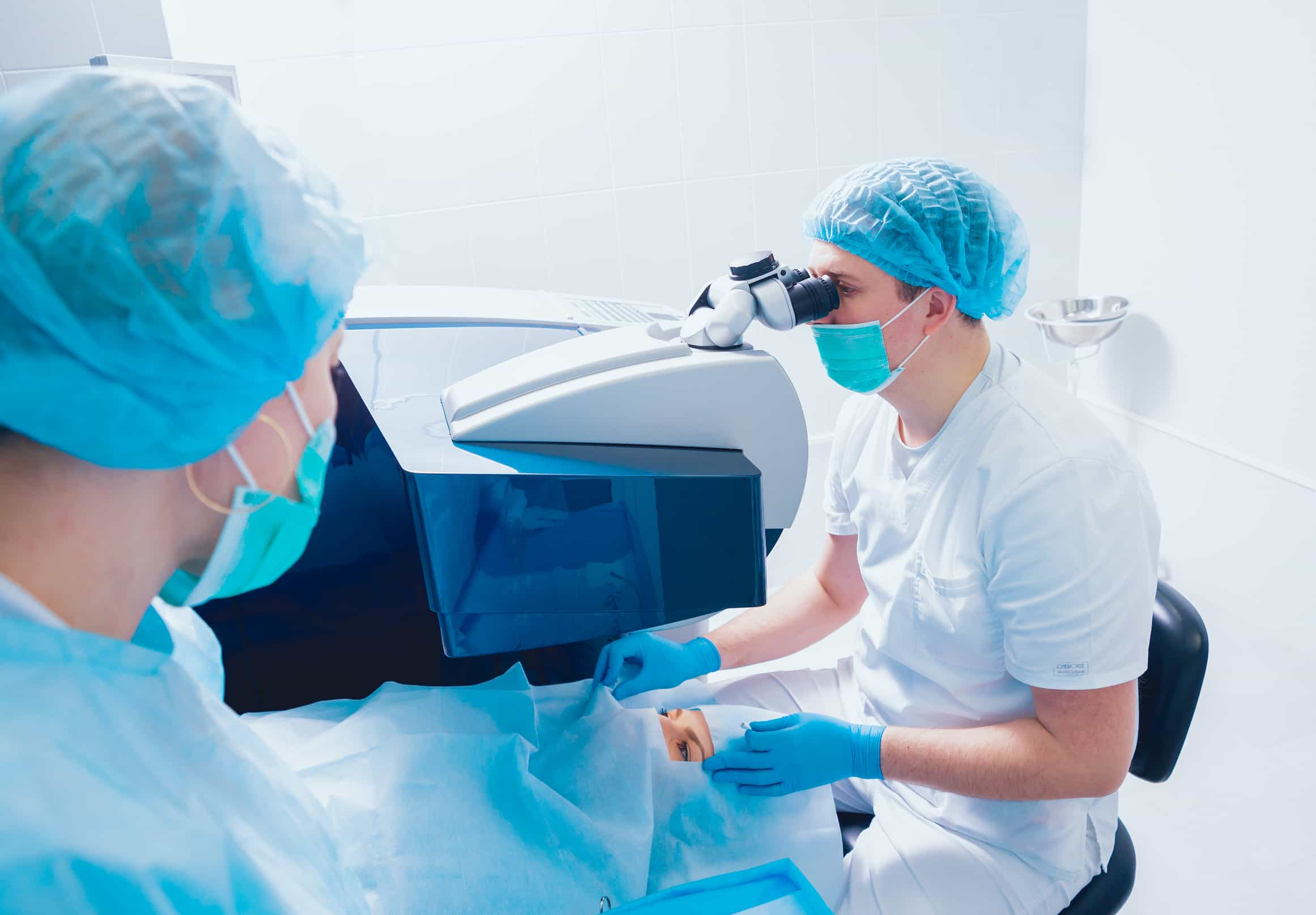
Why Choose Turkey for PRK Surgery?
Turkey is a common choice among international patients seeking advanced PRK surgery. Turkey’s health procedures are safe and effective, with a high success rate, like PRK surgery. The increasing demand for high-quality PRK surgery at affordable prices has made Turkey a popular medical travel destination. In Turkey, PRK surgery is performed by highly experienced and trained doctors with the most advanced technology in the world. PRK surgery is done in Istanbul, Ankara, Antalya, and other major cities. The reasons for choosing PRK surgery in Turkey are as follows:
High-quality hospitals: Joint Commission International (JCI) accredited hospitals have dedicated PRK surgery units that are specially designed for patients. International and national strict protocols provide effective and successful PRK surgery for patients in Turkey.
Qualified experts: The expert teams include nurses and specialist doctors, together to carry out PRK surgery according to the patient’s needs. All the included doctors are highly experienced in performing PRK surgery.
Affordable price: The cost of PRK surgery in Turkey is affordable compared to Europe, the USA, the UK, Singapore, Australia, etc.
The high success rate: Highly experienced specialists, the best available technology, and stringently followed safety guidelines for post-operative care of the patient, resulting in a high success rate for PRK surgery in Turkey.
To enhance the reliability of PRK surgery in Turkey, a comprehensive study was conducted comparing the outcomes of PRK-LASIK with and without wavefront 3D measurements. The study involved patients with varying corneal thickness, and the results demonstrated a significant reduction in risks associated with corneal flap creation when wavefront measurements were employed. This evidence-based approach ensures a safer and more tailored PRK-LASIK procedure for patients, emphasizing the commitment to minimizing risks and optimizing outcomes in refractive surgery.
Is PRK Surgery Safe in Turkey?
Did you know Turkey is one of the most visited destinations for PRK surgery in the world? It is ranked as one of the most popular tourist destinations for PRK surgery. Over the years it has also come to be a very popular medical tourism destination, with many tourists coming in for PRK surgery. There are so many reasons why Turkey stands out as a leading destination for PRK surgery. Because Turkey is both safe and easy to travel to, with a regional airport hub and flight connections to pretty much everywhere, it is preferred for PRK surgery.
The best hospitals in Turkey have experienced medical staff and specialists who have performed thousands of medical services such as PRK surgery. All procedures and coordination related to PRK surgery are controlled by the Ministry of Health in accordance with the law. Over many years, the greatest progress in medicine has been observed in the field of PRK surgery. Turkey is known among foreign patients for its great opportunities in the area of PRK surgery.
To emphasize, besides the price itself, the key factor in selecting a destination for PRK surgery is certainly the standard of medical services, the hospital staff’s high expertise, hospitality, and the safety of the country.
All-Inclusive Packages for PRK Surgery in Turkey
Healthy Türkiye offers all-inclusive packages for PRK surgery in Turkey at much lower prices. Extremely professional and experienced doctors and technicians carry out the high quality PRK surgery. The cost of PRK surgery in European countries can be quite expensive, especially in the UK. Healthy Türkiye provides cheap all-inclusive packages for a long and short stay of PRK surgery in Turkey. Because of many factors, we can provide you with many opportunities for your PRK surgery in Turkey.
The price of PRK surgery differs from other countries due to medical fees, staff labor prices, exchange rates, and market competition. You can save much more in PRK surgery compared to other countries in Turkey. When you purchase PRK surgery all-inclusive package with Healthy Türkiye our healthcare team will present a list of hotels for you to choose from. In PRK surgery travel, you will have the price of your stay included in the all-inclusive package cost.
In Turkey, when you purchase PRK surgery all-inclusive packages through Healthy Türkiye, you will always receive VIP transfers. These are provided by Healthy Türkiye, which is contracted with highly qualified hospitals for PRK surgery in Turkey. Healthy Türkiye teams will organize everything about PRK surgery for you and have you picked up from the airport and safely brought to your accommodation. Once you are settled in the hotel, you will be transferred to and from the clinic or hospital for PRK surgery. After your PRK surgery has been successfully completed, the transfer team will return you to the airport in time for your flight home. In Turkey, all packages of PRK surgery can be arranged upon request, which relaxes the minds of our patients. You can reach out Healthy Türkiye for everything you need to know about prk surgery in Turkey.
The Best Hospitals in Turkey for Prk Surgery
The best hospitals in Turkey for prk surgery are Healthy Türkiye, Memorial Hospital, Acıbadem International Hospital, and Medicalpark Hospital. These hospitals attract patients from all over the world seeking prk surgery due to their affordable prices and high success rates.
Best Doctors and Surgeons in Turkey for Prk Surgery
The best doctors and surgeons in Turkey for prk surgery are highly skilled professionals who offer specialized care and advanced procedures. With their expertise and state-of-the-art techniques, these specialists ensure that patients receive high-quality prk surgery and achieve optimal health results.

Frequently Asked Questions
How long does PRK keep working? People think that PRK is permanent. But it can’t stop eyes from getting older or the vision problems that can come with it. If you are 40 or older and have PRK surgery, you can expect these things to happen.
A photorefractive keratectomy (PRK) is a quick procedure with a short recovery time. It can help you see better if you are nearsighted, farsighted, or have astigmatism. Make sure you have realistic goals for your PRK. Even after surgery, you might still need your glasses or contacts.
After your PRK (photorefractive keratectomy), experts say you need to stabilize your vision. Protecting your eyes while they heal is an important part of getting your vision back to normal. Experts say that you should wear good sunglasses while your eyes are healing from PRK surgery.
PRK works just as well as LASIK when it comes to fixing vision problems. Over 95% of patients see as well as or better than 20/20. After PRK, it takes longer to heal, but it’s worth it to have good vision.
People who have keratoconus or glaucoma will not be able to get PRK. You are also probably not a candidate if you have scars on your eyes from injuries or surgeries that went wrong. If you have problems with your eyes, you probably won’t be able to get any vision procedures.
Several PRK improvements are safe to do as long as the cornea is in good health and there is sufficient corneal thickness remaining after each procedure.
